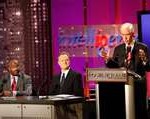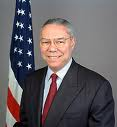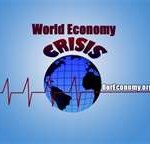Is Islam a Religion of Peace?
 We would like to thank “Union of Americans” “Reader B3, NJ” for introducing us to Intelligence Squared U.S. The ‘motion’ of the debate that we listened to was “Islam is a Religion of Peace”. To watch the debate you may click on…
We would like to thank “Union of Americans” “Reader B3, NJ” for introducing us to Intelligence Squared U.S. The ‘motion’ of the debate that we listened to was “Islam is a Religion of Peace”. To watch the debate you may click on…
“Islam is a Religion of Peace”
Intelligence Squared U.S. offers Oxford-style debates live from New York City. In this format one side proposes and the other side opposes a sharply framed ‘motion’. The audience registers their pre-debate opinion. Each debater presents a 7-minute opening statement, then the floor is opened for audience questions and inter-panel challenges. The debate ends after each debater gives his or her 2-minute closing argument. The audience votes again and the results are tallied. The winner is the team that has swayed more audience members between the two votes.
Since its inception in 2006, the goals have been to provide a new forum for intelligent discussion, grounded in facts and informed by reasoned analysis; to transcend the toxically emotional and the reflexively ideological; and to encourage recognition that the opposing side has intellectually respectable views. They have presented over 35 debates on a wide range of provocative and timely topics.
The following is the results of the “Islam is a Religion of Peace” debate as reported by Chloe Coffman in the Washington Square News on October 7, 2010.
For further information on any of the 35+ debates please visit Intelligence Squared U.S. ~ Editor
Public Debate Questions Peace Within Islam
Hundreds of people poured into the Skirball Center last night to take part in a debate on one of the more controversial issues facing the country today — the growing militarism of Islam. The motion for the debate:
“Is Islam a religion of peace?”
The night, moderated by ABC News’ John Donvan, featured four panelists, two speaking for the motion and two speaking against it. In favor of the proposal were writer and advocate for Muslim American Civic Engagement, Zeba Khan and Maajid Nawaz, a former Muslim extremist who has since renounced Islamist ideology and now speaks up for Amnesty International as a “prisoner of conscience.” Ayaan Hirsi Ali, who led a campaign to reform Islam, and best-selling author and award-winning journalist Douglas Murray, opposed the argument, linking Islam directly with violence.
Prior to the debate, the audience was polled as to what they thought about the issue, and results showed 41 percent were for the motion, 25 percent were against it and 34 percent were undecided.
While a number of arguments were brought to the table, the dialogue was mainly rooted in questioning the original Islamic principles of violence against the doctrine of peace, both of which are dealt with in the Quran.
The main issues raised included the necessity to put the more violent passages of the Quran into historical context.
Those speaking against the motion said absolutist believers failed in their attempts to contextualize the Quran. But Khan said extremists were simply circumnavigating the issue at hand. “[The absolutists] are using Islam to cover for their political grievances,” he said. “Their real issue lies with Western domination.”
At the end of the debate, the opposing side concluded that while reformed Muslims do exist in the Western world, existing extremists are living by the Quran in its entirety, including the violence it contains.
After the debate, poll results revealed a drastic change from the results at the beginning of the night — 36 percent were for the motion, 55 percent were against it and 9 percent were undecided.
Several students voiced their opinions on the debate. “It was an incredible experience,” CAS freshman Zack Barker said. “Originally I was for [the motion] but ultimately I changed by mind. Douglas made some excellent points and really persuaded me.”
But LSP freshman Nidhi Bhatt said her vote fell with the minority in the end. “I thought that if the pro side had been more articulate, then they would have won more votes,” Bhatt said.
Others, such as CAS freshman Billy Shaw, said they were still unsure of which side presented the stronger argument. “The debate was intense and it included the two most controversial issues of today: religion and politics,” Shaw said. “I am ultimately undecided because politically, the opposition is right and religiously, the proposition is right.”









